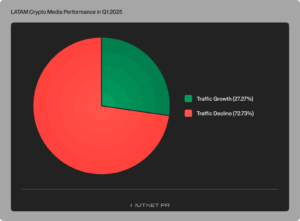
Helmet Guy of PlayAttack Affiliates discusses the decision to make third-party cookies a thing of the past in 2022, with major browsers set to drop them entirely. What ramifications will this change have on affiliates and affiliate programs? How will affiliates need to adapt their strategies moving forward?
Third-party cookies and affiliate marketing are two things that have gone hand-in-hand for as long as we can all remember. They have long been used in affiliate marketing to allow affiliates to trace their conversions back to the affiliate programs they work with through their unique affiliate links. This is why news that they are set to be phased out has raised alarm bells across the iGaming space.
The main reason why major browsers including Safari, Chrome and Firefox have decided to call it quits on third-party cookies arises from serious privacy concerns for consumers. Since third-party cookies are used to track and profile individuals, by eliminating them, privacy will be increased as affiliate marketers will have to find alternatives to ensure the traffic they send is being correctly attributed to them.
How will this affect affiliate marketers?
While it is clear there is no chance the absence of third-party cookies will see the end of affiliate marketing, it is definitely going to have an impact on it. Especially since the use of third-party cookies is such a widespread practice in the affiliate marketing world.
The fact that they help affiliates track visitors in such a detailed manner means it is easier for affiliate programs to determine which of their affiliates is driving specific individuals to their site. In turn, this helps them receive the commission that is rightfully earned.
Therefore, without third-party cookies tracking and storing detailed information on visitors, it will become harder to attribute converting traffic to affiliates. It will also become more difficult to optimise ad campaigns.
With the majority of affiliates and programs currently using these third-party cookies, we must ask ourselves: how will affiliate programs continue to attribute traffic correctly?
While it is clear there is no chance the absence of third-party cookies will see the end of affiliate marketing, it is definitely going to have an impact on it. Especially since the use of third-party cookies is such a widespread practice in the affiliate marketing world
The alternatives
While there are a few alternatives affiliate marketers should consider once third-party cookies are gone, it should be noted companies like Google are also doing their utmost to mitigate certain workarounds to continue tracking individuals in ways that infringe upon their privacy. Methods like fingerprinting, cache inspection, and navigation tracking, will all be on developers’ radar moving forward.
Moreover, here are some of the options that some affiliate programs are already starting to use in preparation for what’s to come in the near future:
- Server-to-server tracking
Server-to-server tracking is another means of accomplishing the same goal that third-party cookies do. The way it works is simple – when an individual clicks on an affiliate link, a unique identifier is created and stored away. This way, if the same user returns and successfully converts, the affiliate program in question will easily be able to attribute the user to the corresponding affiliate. It makes no difference whether the user converts there and then or at a later date; the affiliate will still be credited for driving that particular individual.
- Switch to first-party cookies
Another alternative would be to start leveraging data from first-party cookies. By adding a pixel to a website, affiliates can begin to collect information about how users are behaving and interacting on their affiliate site.
However, for this to become feasible when working with an affiliate program, affiliates need to make sure their data is synchronised in the background with their respective affiliate programs. This way, the affiliate program will be able to monitor users in the same way the affiliate does, resulting in affiliates being paid the commission they have earned.
Google’s response
In Google’s ‘privacy sandbox’, the search engine giant outlines its plan for the removal of third-party cookies and is fully aware third-party cookies have been a ‘critical functionality’ since the nineties. Therefore, it is highly important to note Google does not simply plan to remove them, but that it has also come up with its own alternatives to replace them
In Google’s ‘privacy sandbox’, the search engine giant outlines its plan for the removal of third-party cookies and is fully aware third-party cookies have been a ‘critical functionality’ since the nineties. Therefore, it is highly important to note Google does not simply plan to remove them, but that it has also come up with its own alternatives to replace them.
Of course, the replacements being put forward by Google have been done in such a way as to respect increased privacy for users. They aim to promote transparency for internet users by providing easily accessible answers as to how things work, while also ensuring their experience does not change negatively. Most importantly, Google wants users to be aware browsers are now operating in favour of their interests by protecting their rights to privacy.
More specifically, Google will aim to achieve this by using API’s, better known as ‘Application Programming Interfaces’, technologies that allow companies to collect data without breaking any data protection rules and regulations.
Take action now
The fate of third-party cookies is officially set in stone. So, why wait before taking the first steps towards ensuring your affiliate sales are not too heavily affected?
With the solutions mentioned within this article, and the ones put forward by Google itself, affiliates should be able to make this a smooth transition that would allow them to mitigate financial loss as much as possible.
Furthermore, in some cases, affiliate programs are likely to be in touch with their affiliates with a plan moving forward, whether it be one of the solutions mentioned within this article, like taking advantage of what first-party cookies have to offer, for instance.
So while this is quite a big shift in how affiliates will operate, it is certainly not the end of the world. In the near future, it is highly likely that the industry will continue to develop new technologies – to allow responsible and efficient tracking.
I have been into Cryptocurrency since early 2017. I am a very experienced investor, and have made a lot of money from investing in Bitcoin and other digital currencies. I am also a very popular author, and my work has been featured on sites like Forbes, Huffington Post, Business Insider, and more. I am currently working on a book about Cryptocurrency investing, which will be released later this year. In my free time, I write articles and blog posts about the industry for my followers.








